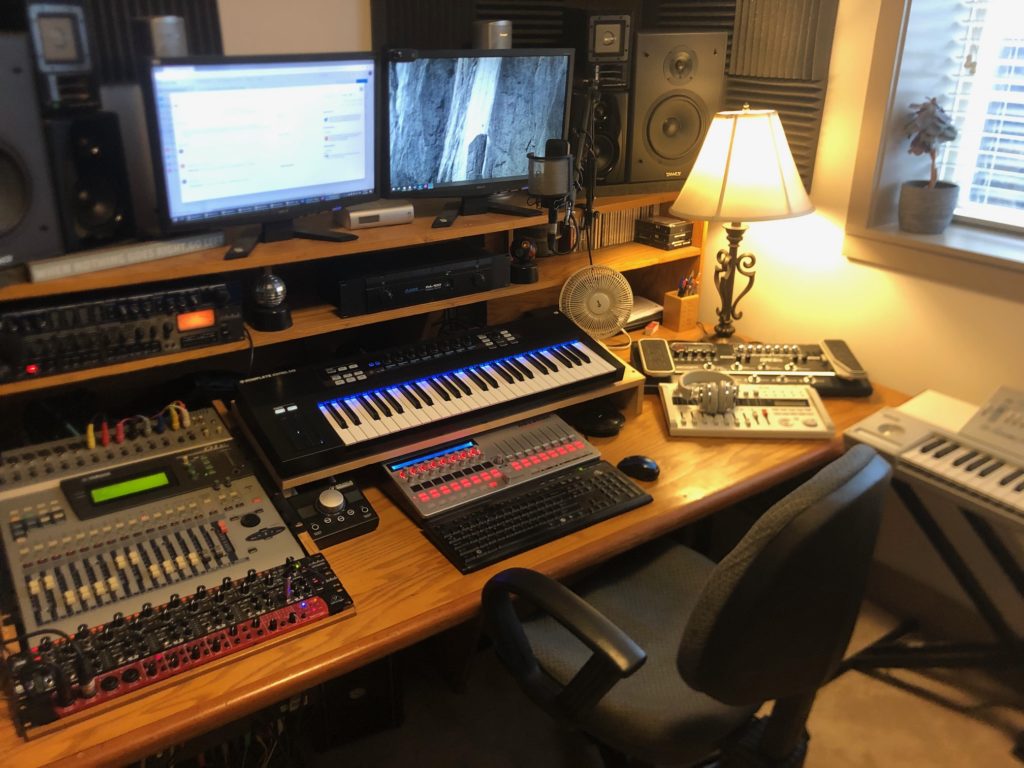A Cautionary Tale for Hobbyist Composers and Producers

Time and time again, we are reminded that in the music business today, patience is the key to long-term success. That consistency, dogged persistence, and a heads-down commitment to the process, will lead to good things – eventually. In fact, you could probably extend that sentiment to anything involving entrepreneurial success in the social/online realm. The message from successful people in this space is always “Just keep at it! Results will come.”
As an aspirational idea, it sounds sensible and even gives you hope. But put in practice, it’s very difficult to stick to isn’t it? If you’re a musician or composer or producer that creates music for sync opportunities, you face rejection – or worse – silence, constantly. It can wear you down and truly test how much you actually believe in that mantra.
Sure, we’ve heard of these people that have made their home studio rig their office and turned it into a reliable six-figure income, but is that actually a model that is repeatable? You have to wonder it these stories only apply to those rare “unicorns” with insane musical chops and the ability to effortlessly crank out polished music like candies from a Pez dispenser? “That’s definitely not me” you’d be inclined to think as you’re playing with the idea of listing all your gear in Reverb and resuming your career in insurance or finance…
Well, let me share with you a little story. I’m one of those people. No, not a unicorn, but the other type.
A number of years ago, I went all-in on the goal of becoming a home studio producer that would churn out cues for television, film and advertising placement and would make a handsome living from doing what I love, on my schedule, and with tot creative control. I was totally intoxicated by the idea, and followed all the recommendations of people I read online, panelists at music conferences, and peers that were further along in their journey. Rather than ease into it by squeezing in studio time on weekends and weeknights, I decided to go all-in. I quit my job, borrowed from home equity to float myself for a couple of years, and hit it hard. The goal was to average one finished track per day, which meant 8-10 hours of focused, efficient work.
I’d read and heard from enough people first-hand to know that results were at least a year away, so it wasn’t difficult to commit to the “write, submit, repeat” mindset when it comes to production music catalog submissions. By setting expectations low, I was able to persist through the early days that I knew wouldn’t offer any feedback loop (in monetary terms), and stuck to that cadence for 18 months fairly easily. And I was having a blast! I was stretching myself creatively, becoming more adept with my DAW and the rest of my rig, and expanding my musical vocabulary into genres and into directions I’d never gone before. I loved it.

By the time I was late into my second year of this schedule, I was deep into my savings, and starting to look for real signs of traction. There were few. Yes, I’d had a few dozen of my instrumental works placed in music libraries, and even a few songs with publishers with good track records. But looking at my PRO statement, still: basically nothing.
At the end of year two, I still subconsciously knew that this is what a lot of producers / composers / artists in my space experienced, and that like many of my more successful music friends would say, it’s a long road. But the grim reality of a savings account that was quickly shrinking, and a mortgage payment that unfortunately, wasn’t, I needed to make the hard choice to find more immediate income.
I eased the day job in slowly at first, working only a few days and continuing to pound out music on the remaining days. But then still seeing nominal results from my music-making, eventually the allure of a pay cheque and demands of a family quietly crowded my creative time out completely. That was 2013. At that stage, I’d placed about 80-100 tracks with various libraries, and had another hundred or so that I felt would eventually find a home if I kept pitching them.
Delayed Gratification at work…
Then an interesting thing started to happen about a year later (now three years after beginning). I received a quarterly SOCAN royalty statement for just shy of $500. This was hardly enough to change my mind about my decision to move onto a traditional career path, but certainly enough to raise one eyebrow slightly. Then the next quarter, another similar-sized statement appeared in my inbox, along with a few small cheques for my share of licensing fees collected by publishers.
Over the next few years, these totals slowly and steadily climbed quarter after quarter. Occasionally, a spike would occur when one one my tracks got a good placement in an ad campaign or high-profile television show. What I was finding is that two to three years after a track was published, it finally had a chance to work its way through all the industry gears – each with their own waiting period – and onto a cheque with my name on it.
At its peak about a year ago, I could attribute about $10-12,000 per year over a 5 year period to those musical works; each one requiring about a day or two of effort. That’s $50-60K in residual income so far just for the collection that I actually got placed with publishers (not including the hundred or so that might have been if I’d persisted by pitching or polishing them further).
Many times over that period, I’ve paused to ask myself, “what if I didn’t stop?”. “What if I was now eight years into that pattern of producing five tracks a week, all the while developing better chops, gaining even more industry contacts, building a reputation and developing a niche? What would that year-over-year income stream look like now?
You are playing the long game
I don’t actually regret the decision that led me toward founding Magnetracks (a software platform in service of artists that do exactly this), but it’s very validating to know that YES, it is possible to make that six-figure income, and YES, it is possible to carve out a music career doing what you’d likely do for free. With commitment to the process, and the knowledge that you’re in it for the long game, it really IS possible.
So for those that can strike the balance between paying the bills with a “day gig” and working music-making into their daily routine until the day that the former crowds out the latter, I say do it. Or if you’re able to live modestly, and go all-in as I did for a concentrated period, again, I say do it!
If you are already partway down this path and feeling deflated and a little impatient that you’re not seeing the progress or momentum you wanted, I’d urge you to be patient and stay committed to the process. Yes, examine ways to get better, do look for new musical angles, do expand your industry network, and be a healthy critic of your own work. But above all else…
Just keep at it! Results will come.